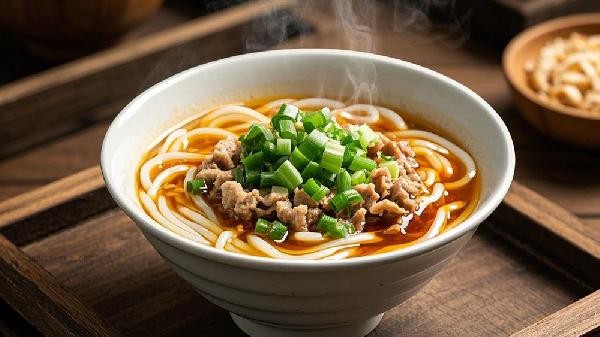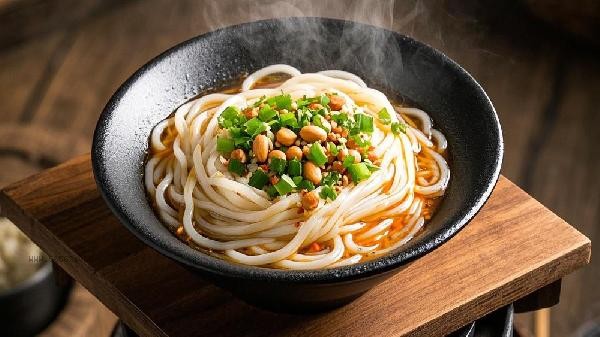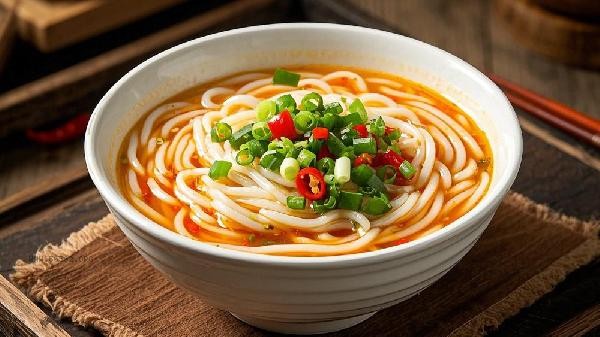The sesame oil of rice noodles usually refers to Sichuan pepper oil or rattan pepper oil, which is extracted by soaking Sichuan pepper or rattan pepper in hot oil and has a unique spicy aroma and flavor. Sichuan pepper oil and rattan pepper oil are commonly used as seasonings for rice noodles, noodles, and cold dishes in regions such as Sichuan, Chongqing, and Yunnan, which can enhance the spicy taste of food. Attention should be paid to controlling the oil temperature during production to avoid burning. People with allergies should use it with caution. Sichuan pepper oil is a traditional Chinese seasoning oil made from red Sichuan pepper or green Sichuan pepper as raw materials, which retains volatile aromatic substances through low-temperature frying. The hydroxyl - α - coumarin and other components in Sichuan pepper produce a typical tingling sensation, which is actually a vibration response of the tactile nerve. High quality pepper oil is bright and amber in color. Its hemp flavor is durable but not overly stimulating. It is often used in Sichuan snacks such as Fuqi Feipian (Sliced Beef and Ox Tongue in Chilli Sauce), Zhong dumplings, etc.

Vine pepper oil is made from vine pepper fruit, which has a more fresh and gentle numbing taste than Sichuan pepper, with a citrus fragrance. The content of terpenes such as limonene and linalool in Tengjiao is higher, making it suitable for pairing with seafood rice noodles or clear soup foods. Some merchants will mix Sichuan pepper and rattan pepper to make oil, making the numbing flavor more layered. It should be noted that the color of rattan pepper oil tends to be yellowish green, and after prolonged storage, flocculent precipitation may occur, which is a normal phenomenon.

When purchasing sesame oil, observe the ingredient list to avoid blending oil containing essence or pigment. Homemade Sichuan peppercorns/rattan peppercorns can be slowly fried with rapeseed oil in a ratio of 1:5 at 80 ℃ until the Sichuan peppercorns become crispy, and then filtered. It is recommended to refrigerate sesame oil after opening, as the aroma substances are prone to volatilization. Individuals with gastrointestinal sensitivity should control their dosage, as excessive intake may irritate the mucous membranes. Although sesame oil can stimulate appetite and promote digestion, it is not suitable for long-term consumption due to Yin deficiency and excessive fire constitution.










Comments (0)
Leave a Comment
No comments yet
Be the first to share your thoughts!